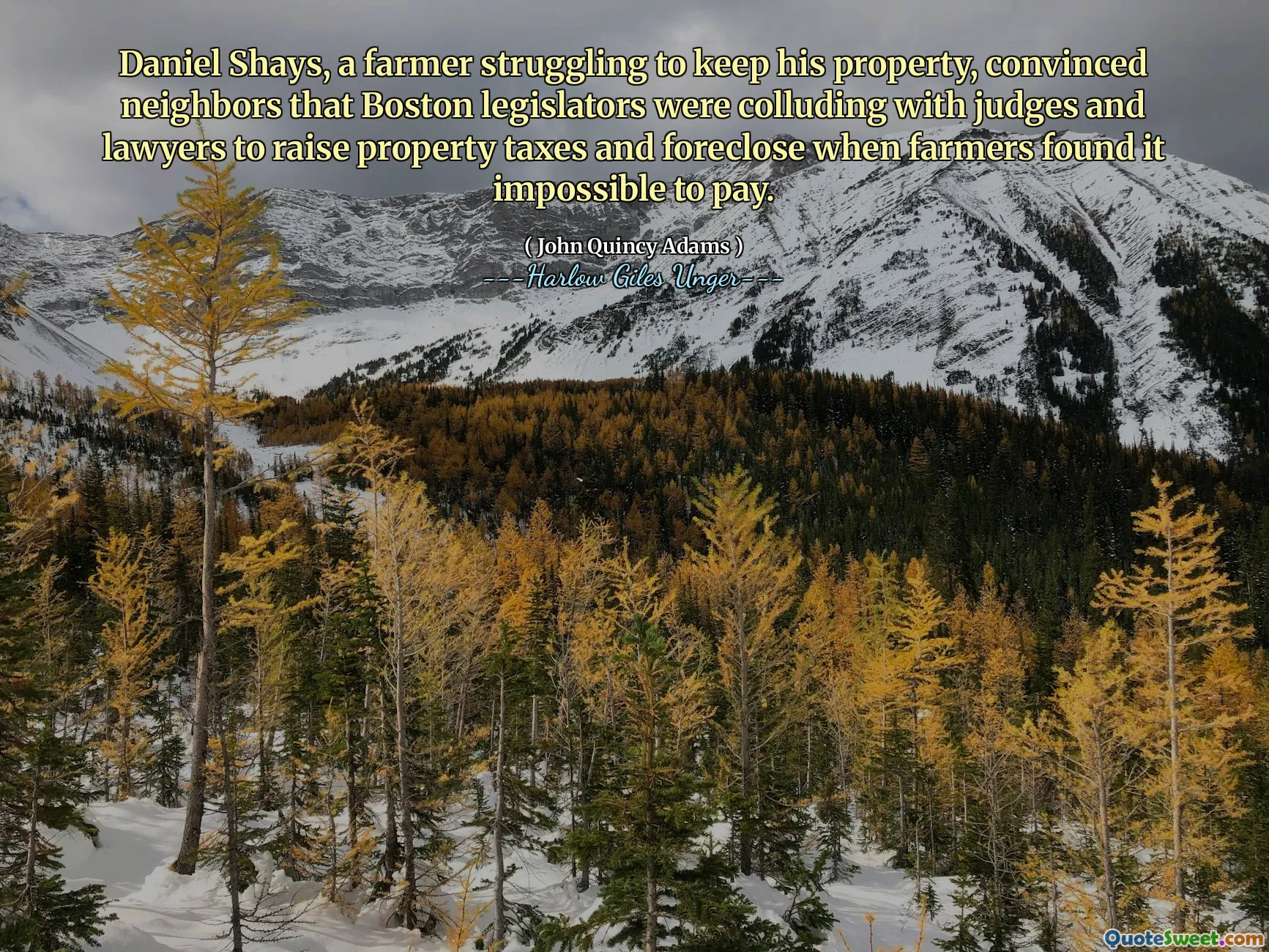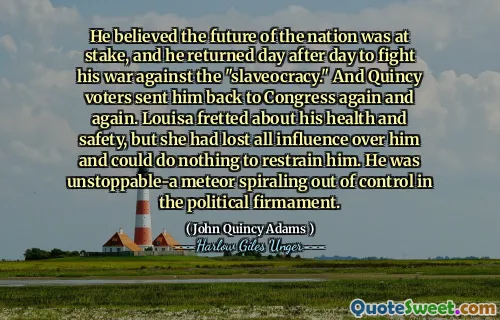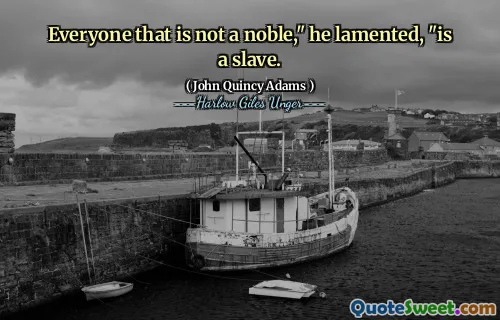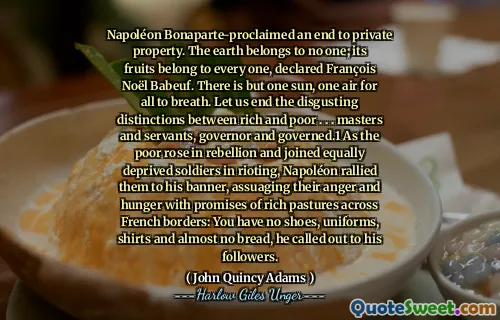
Daniel Shays, a farmer struggling to keep his property, convinced neighbors that Boston legislators were colluding with judges and lawyers to raise property taxes and foreclose when farmers found it impossible to pay.
Daniel Shays, a farmer facing financial distress, rallied his fellow farmers by claiming that Boston's lawmakers were in league with judges and lawyers. He argued that these officials were purposefully increasing property taxes, making it impossible for struggling farmers to keep their land. This belief fostered a sense of injustice among local residents, leading to collective action against what they perceived as a corrupt system.
The unrest sparked by Shays and his neighbors reflected the broader economic struggles of farmers during that period. As foreclosure threats loomed, the farmers felt compelled to confront the government and advocate for their rights to protect their livelihoods. This situation highlighted the growing tension between rural citizens and urban authorities in early American society.










